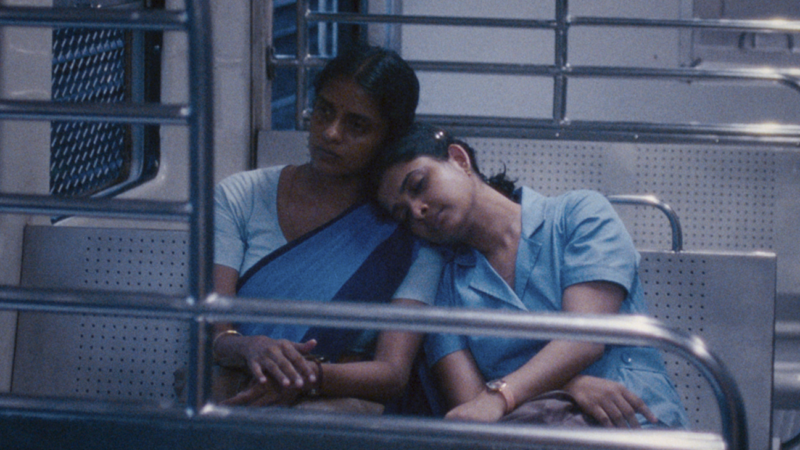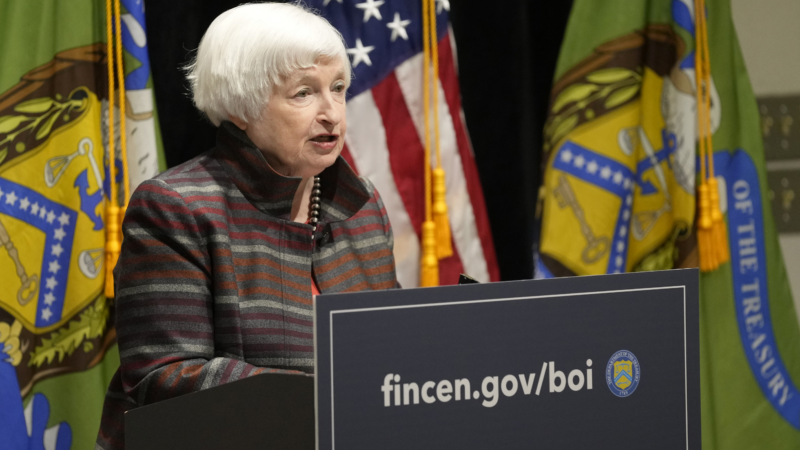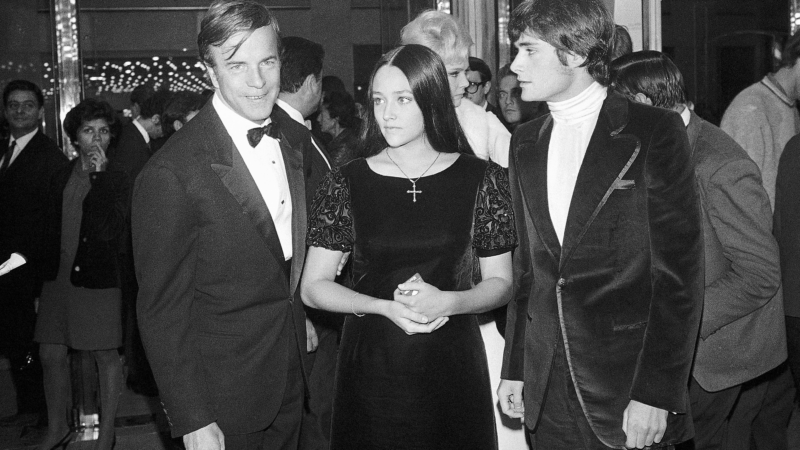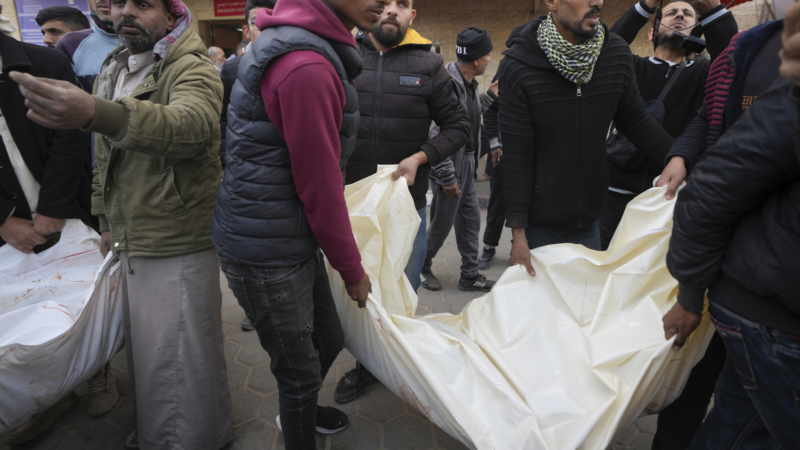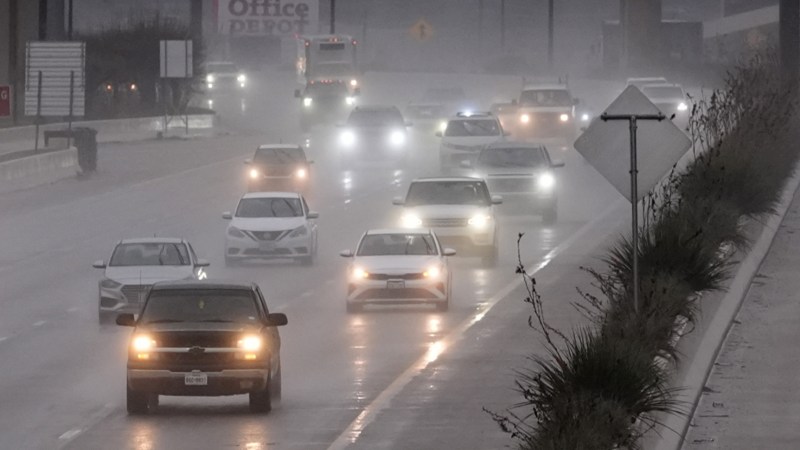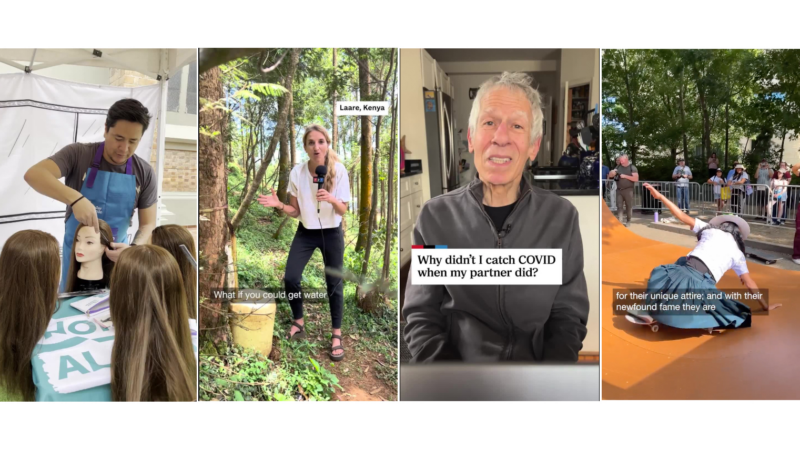Friendship becomes a powerful act of resistance in ‘All We Can Imagine as Light’
The gorgeously enveloping new drama All We Imagine as Light opens on a warm, muggy evening in Mumbai. You feel immediately transported, caught up in the bustle and flow as young men stack crates on the sidewalk, older women sell food in open-air markets, and commuter trains rattle their way across a glimmering cityscape.
Over this scene, we hear the voices of unidentified locals, talking about how invigorating — but also how draining — life in the city can be. It can be especially overwhelming for the many who moved here from distant villages, leaving their families behind.
The writer and director Payal Kapadia, who was born in Mumbai herself, made her first feature a few years ago with A Night of Knowing Nothing, a documentary that blended fiction and nonfiction elements. In a way, All We Imagine as Light, her first dramatic feature, also blurs the boundaries; some of the stories we hear in the opening sequence were drawn from interviews with actual Mumbai residents.
And Kapadia introduces us to her two leads so deftly and casually that it takes us a while to even realize that they are, in fact, the leads. One of them is a woman named Prabha, who works as a head nurse at a hospital. The other is a younger nurse at the hospital, named Anu. Prabha and Anu are roommates, and about as different as can be.
Anu, played by Divya Prabha, is flirty, fun-loving and a little impetuous. Prabha, played by Kani Kusruti, is quieter and more responsible. She’s the one who does most of the cooking and reluctantly agrees to cover the rent when Anu comes up short. Even so, there’s a real sisterly warmth to Anu and Prabha’s relationship, and the more they get to know each other, the more their similarities as well as their differences come into focus.
Both Prabha and Anu came to Mumbai from the southern state of Kerala, and while they rarely see their families back home, both are still governed by strict expectations, especially of their romantic lives. Anu is dating a young man named Shiaz, and because he’s Muslim and she isn’t, she must keep their relationship a secret. Prabha, meanwhile, has a husband who moved to Germany sometime ago for work. She’s barely heard from him since, and fears that their marriage, which was arranged by their parents, is long over.
All We Imagine as Light, in other words, is about a lot of things. It’s about the distances people travel to make ends meet, the difficulty of calling anywhere your home, and the way a populous city can feel like the loneliest place in the world. It’s about how Mumbai looks and feels during the monsoon season, when the rain turns the city into a warm, shimmery blur.
It’s about solidarity between women, as they extend to each other the empathy and understanding that society denies them.
Crucially, too, it’s about solidarity between women, as they extend to each other the empathy and understanding that society denies them. At a key turning point, Prabha and Anu support an older hospital colleague, Parvaty, who’s being forced out of her longtime apartment by greedy developers. Gender inequality is at least partly to blame: Parvaty was widowed not long ago, and any property rights she has seem to have died along with her husband.
Parvaty decides to move back to her coastal home village, and Prabha and Anu come along to help. The effect on All We Imagine as Light is startling; it’s a shock to suddenly find ourselves on a sunny beach, far from rainy, crowded Mumbai. It’s enough to make Prabha and Anu wonder: Do they belong in the rural villages where they grew up, or in the city that has adopted them? And what does home even mean, if they can’t be with the men they love?
Kapadia is too emotionally honest a storyteller to supply concrete answers to these questions. Instead, her filmmaking becomes ever more sensual, harrowing and dreamlike as it ushers these women to a beautiful moment of recognition — of how much they care for and need each other. Society has placed no shortage of obstacles in their way, but friendship, in this wonderful movie, can be its own powerful act of resistance.
Treasury Secretary Janet Yellen says U.S. could hit debt limit in weeks
Yellen told Congress her agency will need to start taking "extraordinary measures," or special accounting maneuvers intended to prevent the nation from hitting the debt ceiling, as early as Jan. 14.
Olivia Hussey, star of the 1968 film ‘Romeo and Juliet,’ dies at 73
Hussey was 15 when director Franco Zeffirelli cast her in his adaptation of the Shakespeare tragedy. The film won two Oscars and Hussey won a Golden Globe for best new actress for her part as Juliet.
Israel detains a Gaza hospital director, Palestinian medical officials say
Gaza's Health Ministry said Dr. Hussam Abu Safiya, director of Kamal Adwan Hospital, was arrested by Israeli forces along with dozens of other staff and taken to an interrogation center.
How to fight ageism in the world around you — and in yourself
Discrimination based on someone's age is so ingrained in society that most of us don't notice it. Yet it affects us all and fighting it not only helps make a better society, it also helps us live longer, healthier lives.
Severe weather could disrupt holiday travel, with tornadoes forecast in the South
Severe thunderstorms and an outbreak of tornadoes could disrupt holiday travel Saturday. More than 3,000 flights were delayed.
Instagram reel roundup: School for dads, COVID conundrum, skateboarders in skirts
The most popular Instagram reels from our Goats and Soda team: Bolivia's bold women skateboarders, ponytail-making lessons, a perplexing COVID situation, fog harvesting.
